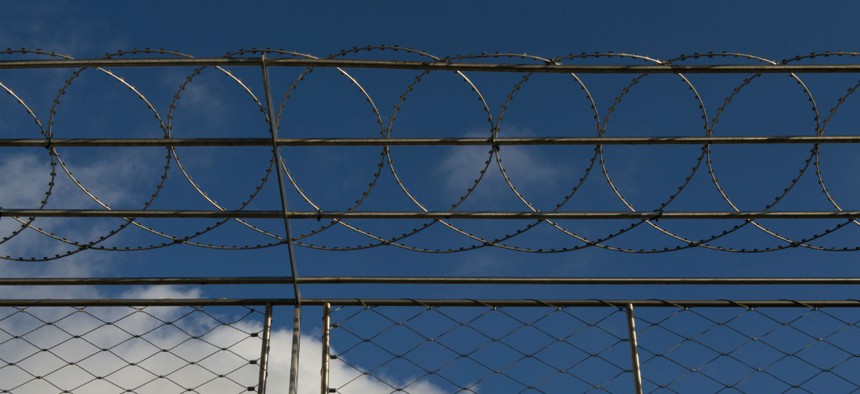More Than $100 Million in Taxpayer Money Mistakenly Went to Vets in Prison
Audit says VA dropped the ball on monitoring overpayments to incarcerated vets because it was so focused on reducing the disability claims backlog.
This story was updated.
The government improperly shelled out $104.1 million in disability compensation and pension payments over seven years to veterans in prison, according to a new watchdog report.
The Veterans Benefits Administration failed to slash benefits given to vets incarcerated in federal, state and local correctional facilities between 2008 and 2015 in thousands of cases, the Veterans Affairs Department inspector general found, primarily because the agency was more focused on eliminating the disability claims backlog, which had ballooned to an all-time high in 2013.
Federal law requires the department to reduce disability compensation and discontinue pension payments for veterans serving more than 60 days in federal, state, or local correctional institutions for a felony, and in some cases, a misdemeanor. For vets with a service-connected disability rating of 20 percent or more, the government reduces disability compensation to a 10 percent rate while they are in prison; for those with a 10 percent rating, the VBA cuts the benefit payment in half for the duration of incarceration.
Because those adjustments do not require VA staff to attribute disability ratings to individual cases, they are not considered part of the department’s disability claims backlog. So, the VBA didn’t prioritize processing them, the watchdog discovered during its two-year audit, which meant millions of taxpayer dollars were wasted.
In one case, the watchdog found that VBA already had overpaid a veteran -- who started serving a 151-month sentence in federal prison in 2012 -- $107,000 in vets’ benefits as of Oct. 1, 2015.
Overall, the inattention led to $59.9 million in overpayments to vets in federal prison, and $44.2 million in erroneous payments for those veterans housed in state and local correctional facilities. Because the workload was not a high priority for VA, data-sharing between VBA, the Justice Department’s Bureau of Prisons, and the Social Security Administration fell by the wayside resulting in significant processing delays, the inspector general found.
For example, after a computer-matching agreement between VBA and BOP expired, “VBA did not receive data from BOP on federal incarcerations from July 2008 through May 2015 – a total of 83 months,” according to the watchdog report. In 3,800 cases involving vets in state and local correctional facilities (out of 21,600 cases that the IG looked at), VBA failed to thoroughly process adjustments to benefits after it had received data from SSA, leading to significant delays.
“The longer the incarceration adjustment remains unaddressed, the larger the overpayment will be to the veteran. It took VBA an average of about 300 days to process state and local incarceration notifications received from March 2013 to August 2014,” the watchdog said. The IG looked at data for federal incarcerations between 2008 and 2015, and SSA notifications between 2013 and 2014 related to state and local incarcerations.
If VBA doesn’t get a handle on the problem, the improper payments could spike to $307.9 million by fiscal 2020, the IG estimated. In its response, the VBA said its staff has to do “additional, time-consuming research to determine the date of conviction” for the veteran because currently BOP does not provide that information.
“VBA will continue to work with FBOP and SSA to obtain the needed data and identify additional ways to streamline the process,” said former VBA Acting Undersecretary for Benefits Danny Pummill in an April response to the IG report.
The agency also noted that it continues to receive more “non-rating” claims, as it characterizes adjustments to the benefits of incarcerated vets, similar to the uptick in new disability compensation claims. “In fiscal year 2015, VBA completed a record 3.1 million non-rating claims, a 15 percent increase over fiscal year 2014,” Pummill wrote.
VBA agreed with all the IG’s recommendations, including making changes to the benefits of incarcerated vets a priority, and recouping any outstanding improper payments on the books. The agency also pledged to renew and improve its existing data-sharing agreements with BOP and SSA.
VA spokesman James Hutton said VBA is also working to "support future automation of the process to minimize benefit overpayments" and that "veterans who become indebted as a result of adjustments to their benefit awards have the right to request a waiver of the overpayment or to establish a repayment plan to help ease the financial burden upon release."








